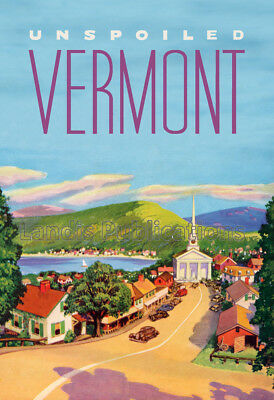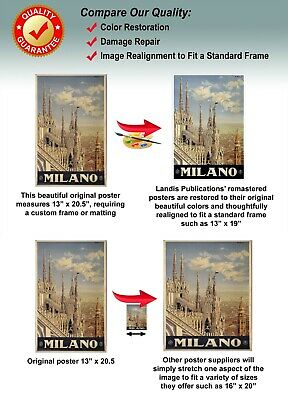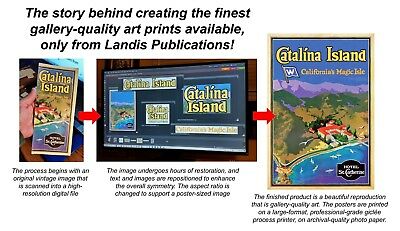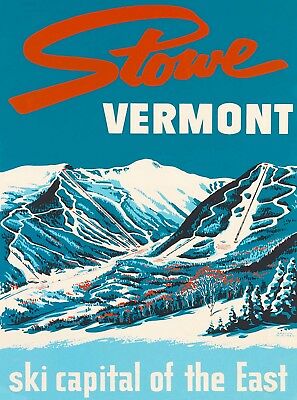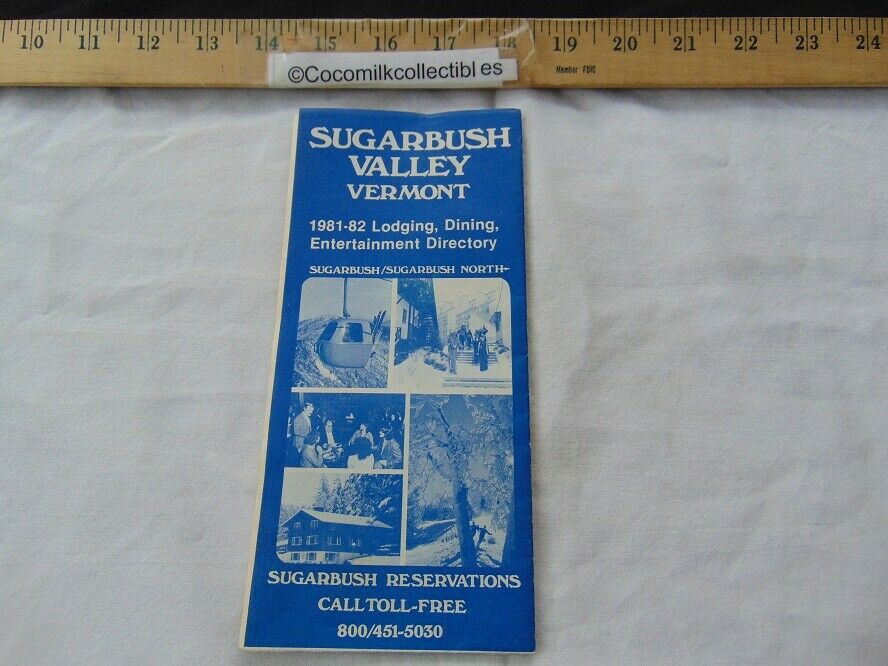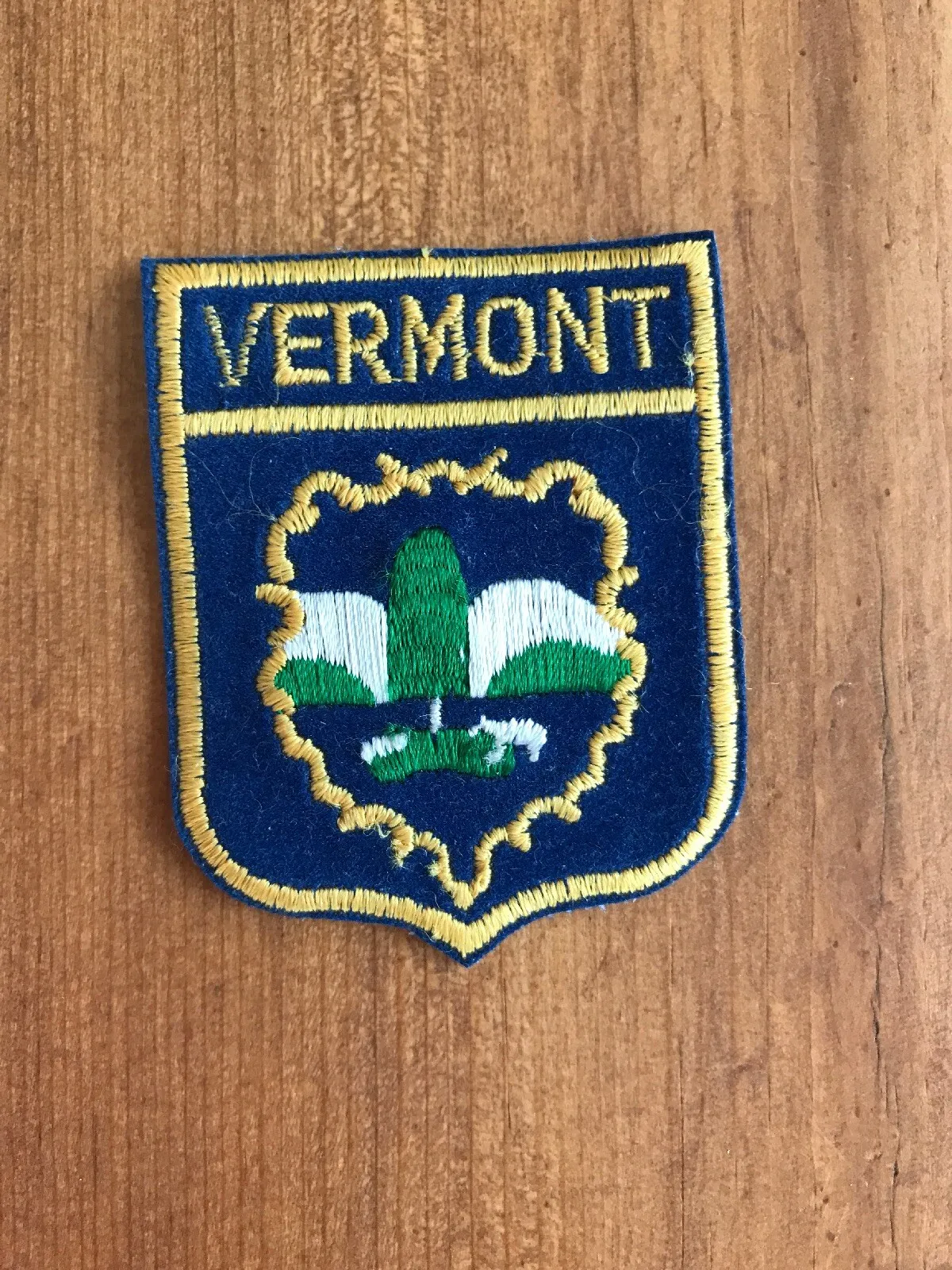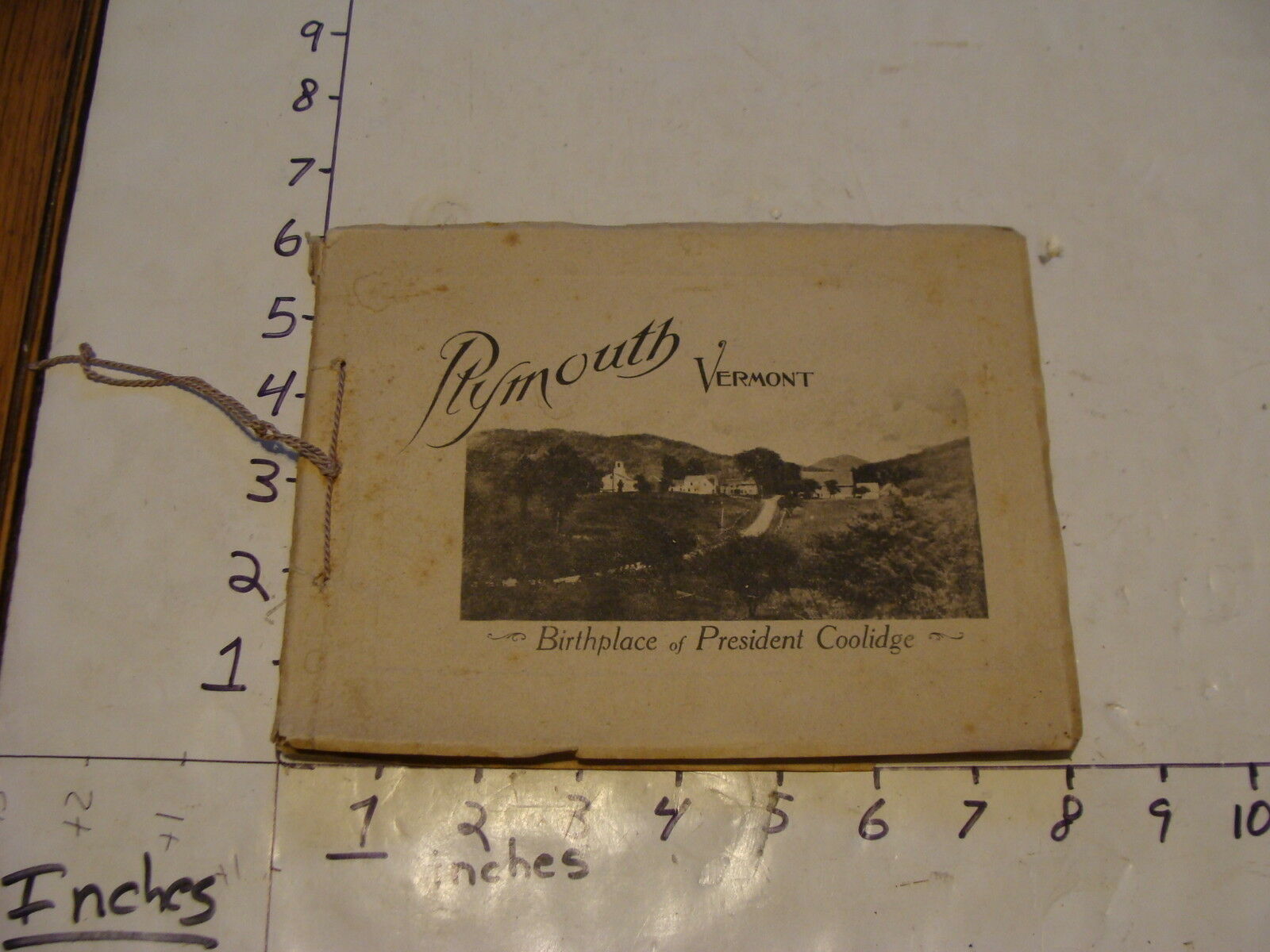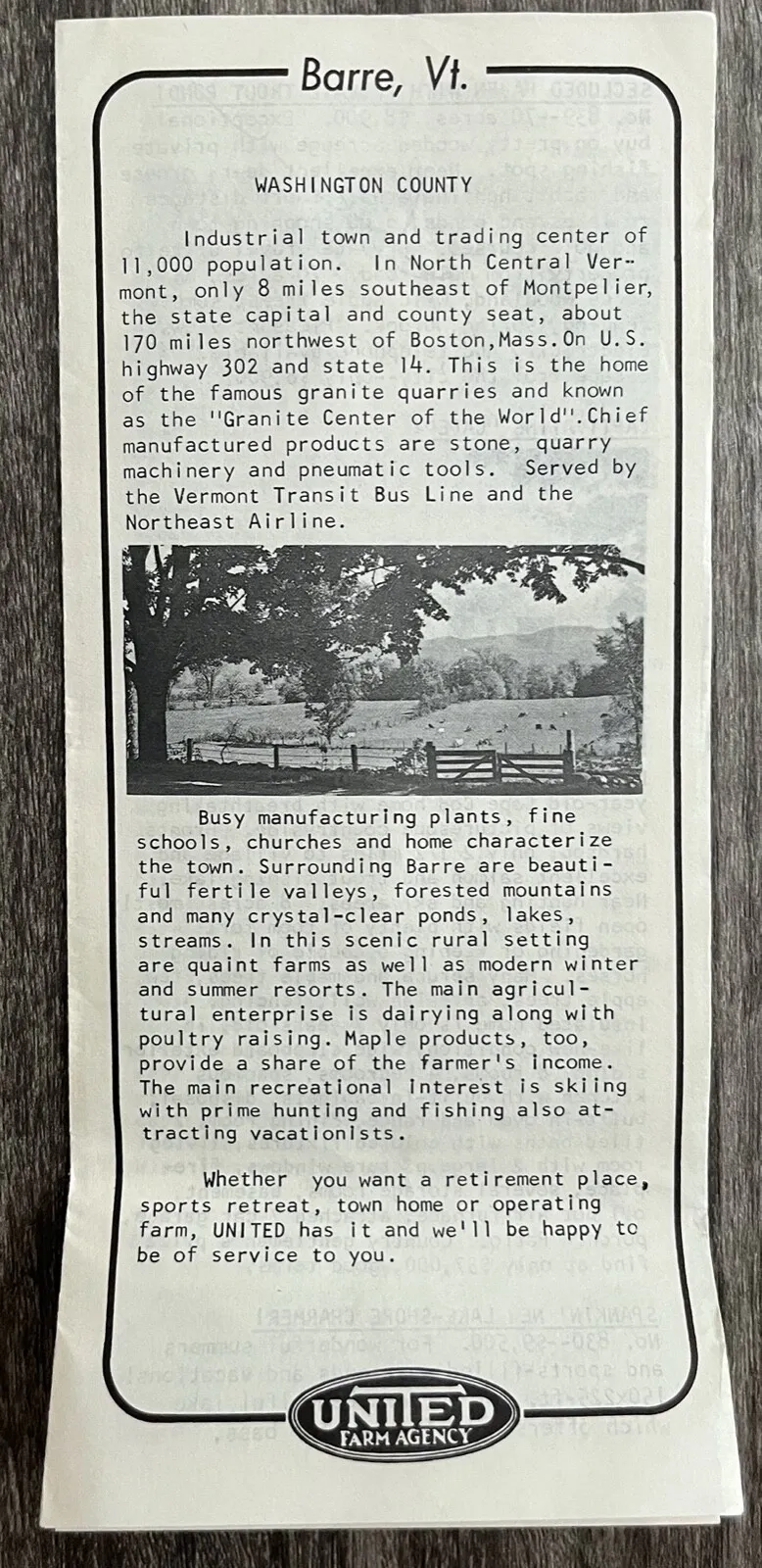-40%
Vintage 1930’s -Unspoiled Vermont - Travel Poster
$ 10.53
- Description
- Size Guide
Description
These are simply the best posters available! You will be thrilled with the image quality, vivid colors, fine paper, and unique subjects.This is an original image that has been transformed into a beautiful poster - available exclusively from Landis Publications.
OUR POSTERS ARE SIZED FOR STANDARD OFF-THE-SHELF FRAMES, WITH NO CUSTOM FRAMING REQUIRED, PROVIDING HUGE COST SAVINGS!
This beautiful reproduction poster has been re-mastered from an original 1930’s advertising brochure for living and vacationing in “Unspoiled Vermont.”
The high-resolution image is printed on heavy archival photo paper, on a large-format, professional giclée process printer. The poster is shipped in a rigid cardboard tube, and is ready for framing.
The 13"x19" format is an excellent image size that looks great as a stand-alone piece of art, or as a grouped visual statement. These posters require
no cutting, trimming, or custom framing
, and a wide variety of 13"x19" frames are readily available at your local craft or hobby retailer, and online.
A great vintage print for your home, shop, or business!
HISTORY OF VERMONT
Vermont is a state in the New England region of the northeastern United States. It borders the U.S. states of Massachusetts to the south, New Hampshire to the east, New York to the west, and the Canadian province of Quebec to the north. Vermont is the second-smallest by population and the sixth-smallest by area of the 50 U.S. states. The state capital is Montpelier, the least populous state capital in the United States. The most populous city, Burlington, is the least populous city to be the most populous city in a state. As of 2015, Vermont was the leading producer of maple syrup in the United States. It was ranked as the safest state in the country in 2016.
For thousands of years indigenous peoples, including the Mohawk and the Algonquian-speaking Abenaki, occupied much of the territory that is now Vermont and was later claimed by France's colony of New France. France ceded the territory to Great Britain after being defeated in 1763 in the Seven Years' War. Thereafter, the nearby colonies, especially the provinces of New Hampshire and New York, disputed the extent of the area called the New Hampshire Grants to the west of the Connecticut River, encompassing present-day Vermont. The provincial government of New York sold land grants to settlers in the region, which conflicted with earlier grants from the government of New Hampshire. The Green Mountain Boys militia protected the interests of the established New Hampshire land grant settlers against the newly arrived settlers with land titles granted by New York.
Ultimately, a group of settlers with New Hampshire land grant titles established the Vermont Republic in 1777 as an independent state during the American Revolutionary War. The Vermont Republic partially abolished slavery before any of the other states. Vermont then became the fourteenth state to be admitted to the newly established United States in 1791. Vermont is one of only four U.S. states that were previously sovereign states (along with California, Hawaii, and Texas), given that the original 13 states were formerly colonies. During the mid 19th century, Vermont was a strong source of abolitionist sentiment and sent a significant contingent of soldiers to participate in the American Civil War.
The geography of the state is marked by the Green Mountains, which run north-south up the middle of the state, separating Lake Champlain and other valley terrain on the west from the Connecticut River valley that defines much of its eastern border. A majority of its terrain is forested with hardwoods and conifers. A majority of its open land is in agriculture. The state's climate is characterized by warm, humid summers and cold, snowy winters. At that time, Protestants (30%) and Catholics (22%) made up the majority of those reporting a religious preference with 37% reporting no religion. Other religions individually contributed no more than 2% to the total.
Vermont's economic activity of billion in 2010 caused it to rank 34th in gross state product. It has been ranked 42nd as a state in which to do business. Politically, Vermont transitioned from being a reliably Republican state to one more liberal starting in 1960. It alternates between Republican and Democratic governors, but has sent only Democrats (or independents) to Congress since 2007. Voters have consistently chosen Democrats for president since 1992. The state became the first to recognize unions for same-sex couples through legislative action with the introduction of civil unions in 2000.
